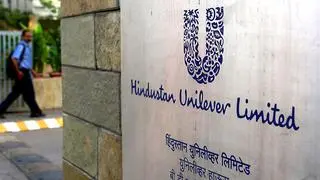Tata Chemicals Ltd is looking to strengthen its FMCG business by entering new product categories, its Managing Director R Mukundan said here on Friday.
The company is exploring staples and other offerings such as wellness and nutri-foods, he said, adding that acquisitions too would be explored, if required.
“We are looking at various options to expand the consumer goods portfolio. This may include staples,” he told reporters on the sidelines of a book launch, Salt of the Earth - The Story of Tata Chemicals .
The consumer goods, or FMCG business, currently includes salt, pulses and lentils, spices and ‘Swach’ brand of water purifiers.
The plan is to take the pulses brand I-Shakti’s turnover to ₹250 crore by the end of this fiscal and to ₹1,000 crore over the next two-three years, he said. The brand is likely to be available across 1,00,000 outlets by March 2015. It is currently available in 70,000 outlets.
Targeted revenues Tata Chemicals is also targeting a turnover of nearly ₹30,000 crore – a near doubling of its current ₹16,000 crore revenues – over the next four years.
Nearly 50 per cent of the targeted revenues will be from the FMCG, nutri, agri and seeds portfolio, while the other half will come from the soda ash and fertilisers verticals.
Restructuring Currently, the food market — including staples, pulses and rice — in India is pegged at ₹3,00,000 crore, providing the company with huge growth opportunities.
“Our growth will mostly be from the non-regulated segment that includes consumer goods, seeds and agri. We are willing to look at inorganic growth too,” he said. Meanwhile, PK Ghose, Executive Director and CFO, Tata Chemicals, told reporters that the company’s foreign units at the UK and Kenya are expected to turn around “shortly”.
The Kenya unit – an ash plant – is expected to turn profitable by December.
The company’s UK unit – a soda ash and calcium chloride plant — will however be back in the black around September 2015.
“The restructuring processes at both these plants are on. We had to close two units — one each in the United Kingdom (UK) and Kenya,” he said.








Comments
Comments have to be in English, and in full sentences. They cannot be abusive or personal. Please abide by our community guidelines for posting your comments.
We have migrated to a new commenting platform. If you are already a registered user of TheHindu Businessline and logged in, you may continue to engage with our articles. If you do not have an account please register and login to post comments. Users can access their older comments by logging into their accounts on Vuukle.